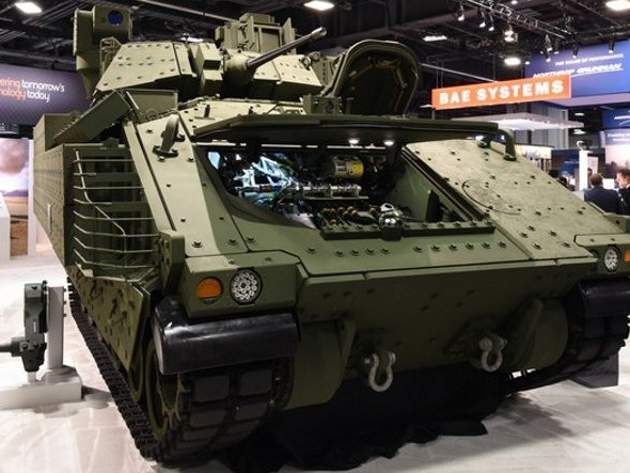

SAIC wins $1.4bn logistics and supply-chain-management services contract from DLA
Science Applications International (SAIC) received a $1.4bn logistics and supply-chain-management services contract from the US Defense Logistics Agency (DLA).

Discover B2B Marketing That Performs
Combine business intelligence and editorial excellence to reach engaged professionals across 36 leading media platforms.
Under the contract, the company will provide chemicals, packaged petroleum, oils and lubricants to the US Army, Navy, Air Force, Marine Corps, federal civilian agencies and foreign military sales customers.
The indefinite-quantity contract has a five-year base period of performance, one three-year option, and one two-year option.
CACI wins position on $978m contract for NGA
CACI International secured a position on a $978m multi-intelligence analytical and collection support services (MACSS) contract to support the National Geospatial-Intelligence Agency (NGA).
The company will provide full-motion video analysis under the multiple-award, indefinite delivery / indefinite quantity contract.

US Tariffs are shifting - will you react or anticipate?
Don’t let policy changes catch you off guard. Stay proactive with real-time data and expert analysis.
By GlobalDataCACI will also supply airborne intelligence, surveillance, and reconnaissance services to the NGA and its customers, in support of US and allied operations worldwide.
UK Government to invest in military cyber systems
The UK Government committed £265m to help enhance British military cyber systems, in order to defend against growing security risks.
The investment, which supports the new Cyber Vulnerability Investigations (CVI) programme, will improve the Ministry of Defence’s (MoD) understanding of cyber risks.
The programme will complement the Cyber Security Operations Centre’s (CSOC) work to enhance protection for the MoD’s cyber-space.
Kuwait requests $194m sale of radars from US
The US Defense Security Cooperation Agency (DSCA) notified Congress of a potential sale of radar field systems to Kuwait.
Under the $194m sale, Kuwait requested six short-range radars, one long-range radar with primary surveillance radar (PSR), and secondary surveillance radar (SSR) arrays.
The procurement of a radar field system is expected to improve early warnings, enhance internal and external security, and protect the country’s national sovereignty.
BAE launches new Bradley fighting vehicle prototype
BAE Systems launched its next-generation Bradley fighting vehicle prototype at the Association of the United States Army (AUSA) annual meeting in Washington, DC.
The new Bradley features an upgraded turret, as well as suspension, targeting sensor and network connectivity improvements made during ongoing Engineering Change Proposal modernisation efforts.
Its suspension upgrades will enhance the vehicle’s mobility for Armored Brigade Combat Team (ABCT) operations, according to the company.
Lithuania agrees to acquire Norwegian advanced surface-to-air missile system

Lithuania’s Ministry of National Defence of Lithuania agreed to acquire Norwegian advanced surface-to-air missile system (NASAMS) components.
The agreement is in line with Lithuania’s strategy to develop the defence capabilities of its armed forces.
Lithuania will continue to procure other NASAMS equipment, such as radars and fire control centres, as part of the mid-range air defence system project, which is valued at more than €100m.
General Dynamics wins $170m US Army contracts to produce Hydra-70 rockets

General Dynamics Ordnance and Tactical Systems (GD-OTS) has received two US Army contracts, totalling $170m, for its Hydra-70 Rocket programme.
The contracts require the company to produce the 2.75in Hydra-70 air-to-ground rocket system for US military services and foreign military sales customers.
Work on the Hydra-70 rocket system programme will be carried out at the company’s US facilities, and is expected to be completed by 2020.
Hackers attack G20 Summit 133,254 times in China

The G20 network was attacked 133,254 times by hackers during a recent meeting in China, NSFOCUS has revealed.
The US-based firm was appointed by China’s Ministry of Public Security to provide 24/7 cyber-security protection for networks and applications associated with the G20 Summit.
NSFOCUS said that there were an additional 1.9 million attacks against organisations who provided other services to the G20 summit.
There were 1,984 distributed denial of service attacks and 169,919 web attacks on G20 and G20-affiliated networks.
US to build $100m surveillance drone base in Niger
The US military is reportedly investing $100m in a new base for surveillance drones in Agadez, central Niger.
The proposed investment represents the US commitment to help the West African country in its fight against militant groups, Reuters reported.
It will be used for the base’s construction, as well as the acquisition of fuel and equipment.
Reuters quoted a US Africa Command spokesperson as saying: “At the request of, and in close coordination with, the Government of Niger, US Africa Command is establishing a temporary, expeditionary cooperative security location in Agadez, Niger.”
Russia suspends plutonium disposition agreement with US
Russia suspended an agreement with the US on the disposal of plutonium from dismantled nuclear weapons and military stockpiles, amid souring ties between the countries.
Under the Plutonium Management and Disposition Agreement (PMDA) signed in April 2010, both countries agreed to dispose of 34t of weapon-grade plutonium each.
Russia President Vladimir Putin issued a decree suspending the PMDA and accused the US of creating ‘an emerging threat to strategic stability that resulted from unfriendly actions of the US toward the Russian Federation’.





